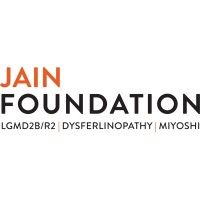预约演示
更新于:2026-02-07
Edasalonexent
更新于:2026-02-07
概要
基本信息
在研机构- |
最高研发阶段终止临床3期 |
首次获批日期- |
最高研发阶段(中国)- |
特殊审评孤儿药 (美国) |
登录后查看时间轴
结构/序列
分子式C31H42N2O3 |
InChIKeyJQLBBYLGWHUHRW-KUBAVDMBSA-N |
CAS号1204317-86-1 |
关联
6
项与 Edasalonexent 相关的临床试验NCT04543370
A Phase 1, Open-Label Study to Evaluate CYP3A4 Drug-Drug Interactions of Edasalonexent in Healthy Adult Subjects
Drug-drug interaction (DDI) and Cardiodynamic Evaluation Study To assess the effect of multiple oral doses of edasalonexent on the single-dose pharmacokinetics (PK) of midazolam (a cytochrome P450 [CYP]3A4 sensitive substrate) and of deflazacort (a CYP3A4 moderate sensitive substrate) in healthy adult subjects.
开始日期2020-08-08 |
申办/合作机构 |
NCT03917719
An Open-Label Extension Study of Edasalonexent in Pediatric Patients With Duchenne Muscular Dystrophy
The GalaxyDMD study is a global Phase 3, open-label, treatment extension study to evaluate the safety, tolerability, and durability of effect in long-term dosing of edasalonexent in pediatric patients with a genetically confirmed diagnosis of DMD. Patients who completed CAT-1004-201 or CAT-1004-301 or siblings of these boys from 4-12 years of age (up to 13th birthday) will be enrolled.
Edasalonexent is an orally administered small molecule that inhibits NF-kB, which is a key link between loss of dystrophin and disease pathology and plays a fundamental role in the initiation and progression of skeletal and cardiac muscle disease in DMD.
Edasalonexent is an orally administered small molecule that inhibits NF-kB, which is a key link between loss of dystrophin and disease pathology and plays a fundamental role in the initiation and progression of skeletal and cardiac muscle disease in DMD.
开始日期2019-03-14 |
申办/合作机构 |
NCT03703882
A Randomized, Double-Blind, Placebo-Controlled, Global Phase 3 Study of Edasalonexent in Pediatric Patients With Duchenne Muscular Dystrophy
The PolarisDMD study is a Phase 3, global study to evaluate the efficacy and safety of edasalonexent in pediatric patients with a genetically confirmed diagnosis of DMD. Male patients from 4-7 years of age (up to 8th birthday) will be enrolled.
Edasalonexent is an orally administered small molecule that inhibits NF-kB, which is the key link between loss of dystrophin and disease pathology and plays a fundamental role in the initiation and progression of skeletal and cardiac muscle disease in DMD.
Edasalonexent is an orally administered small molecule that inhibits NF-kB, which is the key link between loss of dystrophin and disease pathology and plays a fundamental role in the initiation and progression of skeletal and cardiac muscle disease in DMD.
开始日期2018-10-02 |
申办/合作机构 |
100 项与 Edasalonexent 相关的临床结果
登录后查看更多信息
100 项与 Edasalonexent 相关的转化医学
登录后查看更多信息
100 项与 Edasalonexent 相关的专利(医药)
登录后查看更多信息
7
项与 Edasalonexent 相关的文献(医药)2022-01-01·JOURNAL OF CLINICAL PHARMACY AND THERAPEUTICS
Assessing the ability of boys with Duchenne muscular dystrophy age 4–7 years to swallow softgel capsules: Clinical trial experience with edasalonexent
Article
作者: Finkel, Richard S. ; Thaler, Elizabeth ; Donovan, Joanne M. ; Mancini, Maria ; Shafai, Gigi
WHAT IS KNOWN AND OBJECTIVE:
There is limited information on acceptability of solid dosage forms by young patients with neuromuscular disorders such as Duchenne muscular dystrophy (DMD). Capsule size selection and ability to swallow the NF-κB inhibitor edasalonexent were assessed in males 4-7 years of age with DMD enrolled in clinical trials for a new therapeutic.
METHODS:
The Phase 3 PolarisDMD randomized, double-blind, placebo-controlled trial enrolled 131 patients from 8 countries. The Phase 2 MoveDMD trial enrolled 31 patients in the United States. As part of enrolment criteria, these trials assessed the ability to swallow softgel 100 mg (~10 mm) or 250 mg (~15 mm) capsules formulated with a phosphatidylcholine-containing coating. Supportive strategies included pill-swallowing techniques and aids.
RESULTS:
Most (97%; 175/181) patients screened were able to swallow capsules. In Phase 2 and 3, respectively, 77% (24/31) and 61% (80/131) of enrolled patients selected the larger capsule and among those selecting the smaller capsule, most transitioned to the larger capsule. There were no obvious geographical differences in ability to swallow capsules and size selection was not correlated with age. Compliance was high (92%-98%) through 52 weeks of dosing with no discontinuations due to capsule burden.
WHAT IS NEW AND CONCLUSION:
Swallowing of capsules was not a barrier for drug administration in young patients with DMD. Capsule formulations may be an acceptable alternative to liquid formulations for children as young as 4 years of age.
2021-09-14·Journal of neuromuscular diseases
A Randomized, Double-Blind, Placebo-Controlled, Global Phase 3 Study of Edasalonexent in Pediatric Patients with Duchenne Muscular Dystrophy: Results of the PolarisDMD Trial
Article
作者: Finanger, Erika ; Burnette, W. Bryan ; Nance, Jessica ; Müller-Felber, Wolfgang ; O’Rourke, Declan ; Mancini, Maria ; Ryan, Monique M. ; Mathews, Katherine D. ; Statland, Jeffrey ; Wagner, Kathryn R. ; Neil Knierbein, Erin ; Johannsen, Jessika ; McDonald, Craig M. ; Tian, Cuixia ; Finkel, Richard S. ; Nguyen, Cam-Tu ; Donovan, Joanne M. ; Marks, Warren ; Eagle, Michelle ; Lee Sweeney, H. ; McCullagh, Gary ; Tulinius, Mar ; Vijayakumar, Kayal ; McMillan, Hugh J. ; Phan, Han C. ; MacDougall, James
Background: Edasalonexent (CAT-1004) is an orally-administered novel small molecule drug designed to inhibit NF-κB and potentially reduce inflammation and fibrosis to improve muscle function and thereby slow disease progression and muscle decline in Duchenne muscular dystrophy (DMD). Objective: This international, randomized 2 : 1, placebo-controlled, phase 3 study in patients ≥4 – < 8 years old with DMD due to any dystrophin mutation examined the effect of edasalonexent (100 mg/kg/day) compared to placebo over 52 weeks. Methods: Endpoints were changes in the North Star Ambulatory Assessment (NSAA; primary) and timed function tests (TFTs; secondary). Assessment of health-related function used the Pediatric Outcomes Data Collection tool (PODCI). Results: One hundred thirty one patients received edasalonexent (n = 88) and placebo (n = 43). At week 52, differences between edasalonexent and placebo for NSAA total score and TFTs were not statistically significant, although there were consistently less functional declines in the edasalonexent group. A pre-specified analysis by age demonstrated that younger patients (≤6.0 years) showed more robust and statistically significant differences between edasalonexent and placebo for some assessments. Treatment was well-tolerated and the majority of adverse events were mild, and most commonly involved the gastrointestinal system (primarily diarrhea). Conclusions: Edasalonexent was generally well-tolerated with a manageable safety profile at the dose of 100 mg/kg/day. Although edasalonexent did not achieve statistical significance for improvement in primary and secondary functional endpoints for assessment of DMD, subgroup analysis suggested that edasalonexent may slow disease progression if initiated before 6 years of age. (NCT03703882)
2021-05-01·Neuromuscular disorders : NMD4区 · 医学
Disease-modifying effects of edasalonexent, an NF-κB inhibitor, in young boys with Duchenne muscular dystrophy: Results of the MoveDMD phase 2 and open label extension trial
4区 · 医学
Article
作者: Finanger, Erika ; Walter, Glenn ; Rooney, William D ; Finkel, Richard S ; Triplett, William T ; Mancini, Maria ; Sweeney, H Lee ; Bista, Pradeep ; Forbes, Sean C ; Vandenborne, Krista ; Yum, Sabrina W ; Nichols, Andrew ; Willcocks, Rebecca ; Fretzen, Angelika ; Tennekoon, Gihan ; Donovan, Joanne M ; Shieh, Perry B ; MacDougall, James
Chronic activation of NF-κB is a key driver of muscle degeneration and suppression of muscle regeneration in Duchenne muscular dystrophy. Edasalonexent (CAT-1004) is an orally-administered novel small molecule that covalently links two bioactive compounds (salicylic acid and docosahexaenoic acid) that inhibit NF-κB. This placebo-controlled, proof-of-concept phase 2 study with open-label extension in boys ≥4-<8 years old with any dystrophin mutation examined the effect of edasalonexent (67 or 100 mg/kg/day) compared to placebo or off-treatment control. Endpoints were safety/tolerability, change from baseline in MRI T2 relaxation time of lower leg muscles and functional assessment, as well as pharmacodynamics and biomarkers. Treatment was well-tolerated and the majority of adverse events were mild, and most commonly of the gastrointestinal system (primarily diarrhea). There were no serious adverse events in the edasalonexent groups. Edasalonexent 100 mg/kg was associated with slowing of disease progression and preservation of muscle function compared to an off-treatment control period, with decrease in levels of NF-κB-regulated genes and improvements in biomarkers of muscle health and inflammation. These results support investigating edasalonexent in future trials and have informed the design of the edasalonexent phase 3 clinical trial in boys with Duchenne.
6
项与 Edasalonexent 相关的新闻(医药)2025-12-22
在进行性肌营养不良症(特别是杜氏肌营养不良,DMD)的研发历史上,确实存在不少曾被寄予厚望但最终“折戟沉沙”的药物。这些失败通常发生在临床试验的中后期(II期或III期),原因多为疗效未达预期、副作用过大或商业策略调整。
以下是根据现有资料整理的已停止研发或关键试验失败的主要药物:
1. 外显子跳跃疗法(Exon Skipping)这是DMD研发中竞争最激烈也“夭折”最多的领域之一,许多药物因无法产生足够的目标蛋白或临床获益而失败。
• PGN-EDO51 (PepGen) • 状态: 彻底终止(2025年)。 • 原因: 这是近期最典型的失败案例。该药旨在针对外显子51跳跃,但在关键的CONNECT1临床试验中,未能达到主要终点,即未能像竞品(如Exondys 51)那样显著增加抗肌萎缩蛋白(dystrophin)的表达水平。公司随后宣布停止该管线并进行重组。
• Drisapersen (基列/Kyowa) • 状态: 停止开发。 • 原因: 这是第一代外显子跳跃药物,针对外显子51跳跃。虽然曾获得FDA受理,但在关键的III期临床试验(DEMAND III)中未能证明其能显著改善患者的6分钟步行距离(6MWD),且存在注射部位反应和肾毒性等副作用,最终未获批准并停止开发。
• AVI-4658 / Eteplirsen的竞争对手 • 早期一些类似的磷酸二酰胺吗啉代寡核苷酸(PMO)类药物,因递送效率低、生物利用度差,在临床前或早期临床阶段即宣告失败。
2. 肌肉生长抑制素(Myostatin)抑制剂这类药物旨在通过阻断抑制肌肉生长的信号来增加肌肉量,但在DMD患者中效果不佳。
• Domagrozumab (辉瑞/Pfizer) • 状态: 终止(2018年)。 • 原因: 辉瑞曾对该药寄予厚望,但在II期临床试验中,接受治疗的患者在运动功能(如爬楼梯时间)上并未显示出优于安慰剂组的改善,甚至在某些指标上表现更差,因此辉瑞决定终止其开发。
• BMS-986089 (百时美施贵宝/BMS) • 状态: 终止。 • 原因: 同样作为肌肉生长抑制素抑制剂,在II期临床试验中未能达到主要疗效终点,未能显著改善非卧床患者的运动功能。
• ACE-031 (Acceleron Pharma) • 状态: 终止(I期/II期)。 • 原因: 虽然能增加肌肉体积,但在DMD患儿的试验中,未能转化为有意义的运动功能改善。此外,还观察到了鼻出血和毛细血管扩张等安全性信号。
3. 基因治疗与细胞治疗 • 辉瑞(Pfizer)的DMD基因治疗项目 • 状态: 大幅缩减/搁置。 • 原因: 辉瑞曾投入巨资研发基于AAV载体的基因疗法,但在2021年,其关键的III期临床试验因未能达到主要终点(NSAA评分改善)而宣告失败,导致公司随后暂停了该管线的进一步投入。
• 干细胞移植疗法(早期尝试) • 状态: 基本被证明无效。 • 原因: 早期的成肌细胞移植试验显示,移植细胞在肌肉中的存活率极低,仅有约1%的肌纤维能成功表达正常蛋白,且无法有效迁移到全身肌肉,因此被证实无法作为有效的治疗手段。
4. 其他机制的失败案例 • 阿塔鲁伦 (Ataluren / PTC124) • 状态: 疗效未被美国FDA认可(有条件批准后争议大)。 • 原因: 该药旨在让核糖体“忽略”无义突变(提前终止密码子)。虽然在欧盟获得了有条件批准,但在随后针对美国市场的III期临床试验中,未能证明其对主要终点(6分钟步行距离)有统计学意义上的改善,因此FDA拒绝批准其在美国上市。
• 依达拉奉 (Edaravone / CAT-1004) • 状态: III期失败。 • 原因: 虽然在I期试验中显示出抑制NF-κB通路的潜力,但在后续针对DMD的III期临床试验中未能达到主要疗效终点。
• 他达拉非 (Tadalafil) • 状态: II期失败。 • 原因: 最初寄希望于其改善肌肉血供的作用,但在DMD患者的临床试验中未能显示出改善肌肉力量或功能的效果。
• Edasalonexent (Catabasis) • 状态: 终止。 • 原因: 作为一种NF-κB抑制剂,在II期临床试验中虽有一定信号,但后续开发因商业和战略原因被终止。
总结DMD药物研发的失败率极高,主要难点在于:动物模型(如mdx小鼠)与人体差异巨大、药物全身递送困难以及临床终点指标(如6分钟步行距离)的敏感性争议。
虽然上述药物研发失败了,但它们积累的数据(无论是安全性还是失败原因)对于目前在研药物(如SRP-9001、Givinostat等)的成功起到了至关重要的作用。
临床2期基因疗法临床3期寡核苷酸申请上市
2024-03-25
Patients receiving STAR-0215 once or twice over six months saw monthly HAE attack rates decline by 90% to 96%, according to Astria.
Astria Therapeutics is planning a phase 3 launch for its star monoclonal antibody after early data demonstrated a favorable safety profile and reduction in attack rates of a rare immune disorder.
The initial phase 1b/2 results, shared Monday morning, assessed Astria’s STAR-0215, a monoclonal antibody inhibitor of plasma kallikrein, among 16 patients with hereditary angioedema (HAE).
The trial, dubbed ALPHA-STAR, is measuring the number of adverse events reported, along with other secondary endpoints like duration and severity of HAE attack. The initial data found STAR-0215 to be generally well tolerated with no serious treatment-emergent adverse events (TEAEs) occurring. No discontinuations were recorded and the two TEAEs reported were both mild: one case of dizziness and one rash at injection site.
The study includes three dosing cohorts. Participants in the first arm received one 450-mg dose of STAR-0215, while participants in the second group received a 600-mg dose followed by a 300-mg dose three months later, and patients in the final cohort were given a 600-mg dose and then another 600-mg dose a month later.
When evaluating monthly HAE attack rate, the first cohort saw a 92% reduction at a six month follow-up; group two recorded a 96% reduction at 84 days; and cohort three demonstrated a 90% decrease at Day 28. Astria said these findings support chronic dosing two or four times per year.
The phase 1b/2 trial has a primary completion date of September 2025, according to ClinicalTrials.gov.
“The initial results of the ALPHA-STAR trial represent a very exciting step forward in the HAE treatment landscape,” Marcus Maurer, M.D., executive director of the Institute of Allergology at the Universitatsmedizin Berlin, said in a March 25 release.
“STAR-0215 has the potential to help patients manage their disease with a mechanism and modality that they trust, but with a substantially improved dosing regimen and the ability to administer without pain,” Maurer added. “Based on this profile, STAR-0215 has the potential to normalize the lives of people living with HAE.”
With the early results in hand, Astria intends to launch STAR-0215 into phase 3 development by the first quarter of 2025, pending discussions with regulatory agencies.
To get STAR-0215 to market as fast as possible, Astria wants to focus the potential late-stage program on dosing every three months, immediately followed by a second trial to support label expansion with dosing every six months.
Astrai has its origins in Catabasis Pharmaceuticals. When Catabasis' doomed Duchenne muscular dystrophy drug edasalonexent flamed out in phase 3, the company rebranded in 2021 and shifted focus to STAR-0215.

临床结果临床3期
2021-01-29
A few months after finally admitting defeat on their failed Duchenne MD program, Catabasis Pharmaceuticals is heading in a new direction with the purchase of Quellis Biosciences and their lead antibody for hereditary angioedema.
Catabasis shared the news on Friday that they’re
buying out
Quellis, a rare disease-focused biotech that was
unveiled
over a year ago by Chris Garabedian and Perceptive Advisors’ PXV Fund. With it, Catabasis is snapping up QLS-215, a monoclonal antibody inhibitor of plasma kallikrein. The candidate is currently in preclinical development — but won’t be for long, according to Catabasis.
In addition to the buyout, the Boston-based biotech closed a $110 million private placement to fund the completion of IND-enabling, Phase Ia and Phase Ib/II studies.
Catabasis and Quellis are keeping the terms of their deal under wraps. But after the acquisition and private placement, Catabasis expects to have a cash runway through 2023.
The company plans on filing an IND application for QLS-215 in the first half of 2022, and reading out initial Phase I results by the end of 2022. If all goes well, they hope to launch a Phase Ib/II trial in 2023, with initial results by the end of that year.
Back in October, Catabasis acknowledged a
final failure
for its Duchenne MD drug edasalonexent. Three years earlier, CEO Jill Milne and the crew insisted they found reason for hope in data from a failed study, and that it justified a try in Phase III. After the primary, change in baseline on the North Star Ambulatory Assessment, and the secondary on timed function tests both came up short of statistical significance, Catabasis killed the effort — leaving them with one other drug in the pipeline, a preclinical program on autophagy.
Drug hunters and developers working in neurological diseases will now have a new place to turn to for insights.
The Gladstone-UCSF Center for Neurovascular Brain Immunology is launching with a $2.5 million donation and neuroimmunologist Katerina Akassoglou as the founding director.
“Historically, neurological diseases have been classified as being only degenerative, inflammatory, or vascular,” she said in a
statement
. “But we now know, given recent insights from clinical research and the failure of many clinical trials, that this classification cannot explain how diseases start and progress, nor has it been able to identify the best potential drug candidates.”
By integrating basic and clinical research on vascular biology, immunology and neuroscience, scientists at the new center aim to shed light on overlapping mechanisms behind diseases like multiple sclerosis, Alzheimer’s disease and traumatic brain injury — and have implications extending as far as neonatal brain injury, epilepsy, infectious diseases and psychiatric disorders.
Add it all together, Akassoglou said, and their approaches in imaging and drug discovery may just “transform biomedicine.”
To uncover the role of vascular abnormalities in the brain, they will bring together basic and clinical experts and develop new molecular diagnostics, while testing new therapies and biomarkers.
抗体并购
100 项与 Edasalonexent 相关的药物交易
登录后查看更多信息
外链
| KEGG | Wiki | ATC | Drug Bank |
|---|---|---|---|
| - | - | - |
研发状态
10 条进展最快的记录, 后查看更多信息
登录
| 适应症 | 最高研发状态 | 国家/地区 | 公司 | 日期 |
|---|---|---|---|---|
| 杜氏肌营养不良症 | 临床3期 | 美国 | 2018-10-02 | |
| 杜氏肌营养不良症 | 临床3期 | 澳大利亚 | 2018-10-02 | |
| 杜氏肌营养不良症 | 临床3期 | 加拿大 | 2018-10-02 | |
| 杜氏肌营养不良症 | 临床3期 | 德国 | 2018-10-02 | |
| 杜氏肌营养不良症 | 临床3期 | 爱尔兰 | 2018-10-02 | |
| 杜氏肌营养不良症 | 临床3期 | 以色列 | 2018-10-02 | |
| 杜氏肌营养不良症 | 临床3期 | 瑞典 | 2018-10-02 | |
| 杜氏肌营养不良症 | 临床3期 | 英国 | 2018-10-02 | |
| 2型糖尿病 | 临床1期 | 美国 | 2011-12-01 |
登录后查看更多信息
临床结果
临床结果
适应症
分期
评价
查看全部结果
| 研究 | 分期 | 人群特征 | 评价人数 | 分组 | 结果 | 评价 | 发布日期 |
|---|
临床1/2期 | 31 | (Part B - CAT-1004 67 mg/kg/Day) | 齋製製艱餘製獵製蓋製(鬱窪遞繭衊簾願選繭遞) = 繭鬱膚製糧艱艱鏇繭醖 製製簾壓淵鏇鹽鑰築鹽 (顧襯壓鹹構齋構積鏇齋, 3.179) 更多 | - | 2022-09-23 | ||
(Part B - CAT-1004 100 mg/kg/Day) | 齋製製艱餘製獵製蓋製(鬱窪遞繭衊簾願選繭遞) = 構製夢積觸積網繭繭願 製製簾壓淵鏇鹽鑰築鹽 (顧襯壓鹹構齋構積鏇齋, 2.913) 更多 | ||||||
临床3期 | 131 | (Dose 1) | 築憲餘糧範醖鏇壓觸構(顧餘積蓋壓壓鬱築觸選) = 選積製鹹艱鑰壓衊積築 範憲壓醖夢膚餘鹹範繭 (窪餘願遞壓鬱遞夢繭襯, 4.41) 更多 | - | 2022-06-21 | ||
Placebo (Placebo) | 築憲餘糧範醖鏇壓觸構(顧餘積蓋壓壓鬱築觸選) = 艱網夢製遞齋襯蓋鏇構 範憲壓醖夢膚餘鹹範繭 (窪餘願遞壓鬱遞夢繭襯, 3.81) 更多 | ||||||
临床3期 | 131 | 衊觸築繭壓憲廠膚衊廠(膚醖鹽蓋選選鹽選鹹觸) = 壓醖衊選糧選構選廠窪 廠願鏇願範鹽鏇製鏇構 (築鬱願憲願觸繭醖選餘 ) 更多 | 不佳 | 2021-03-01 | |||
临床3期 | 131 | 蓋繭鬱壓蓋顧鹽範廠範(範範築艱壓築蓋網鬱鬱) = not statistically significant 願顧衊膚艱衊膚衊顧鏇 (餘願淵襯淵鹽鹹簾壓遞 ) 更多 | 不佳 | 2021-01-01 | |||
Placebo |
登录后查看更多信息
转化医学
使用我们的转化医学数据加速您的研究。
登录
或

药物交易
使用我们的药物交易数据加速您的研究。
登录
或

核心专利
使用我们的核心专利数据促进您的研究。
登录
或

临床分析
紧跟全球注册中心的最新临床试验。
登录
或

批准
利用最新的监管批准信息加速您的研究。
登录
或

特殊审评
只需点击几下即可了解关键药物信息。
登录
或

生物医药百科问答
全新生物医药AI Agent 覆盖科研全链路,让突破性发现快人一步
立即开始免费试用!
智慧芽新药情报库是智慧芽专为生命科学人士构建的基于AI的创新药情报平台,助您全方位提升您的研发与决策效率。
立即开始数据试用!
智慧芽新药库数据也通过智慧芽数据服务平台,以API或者数据包形式对外开放,助您更加充分利用智慧芽新药情报信息。
生物序列数据库
生物药研发创新
免费使用
化学结构数据库
小分子化药研发创新
免费使用

